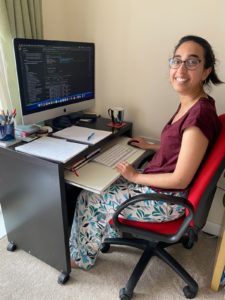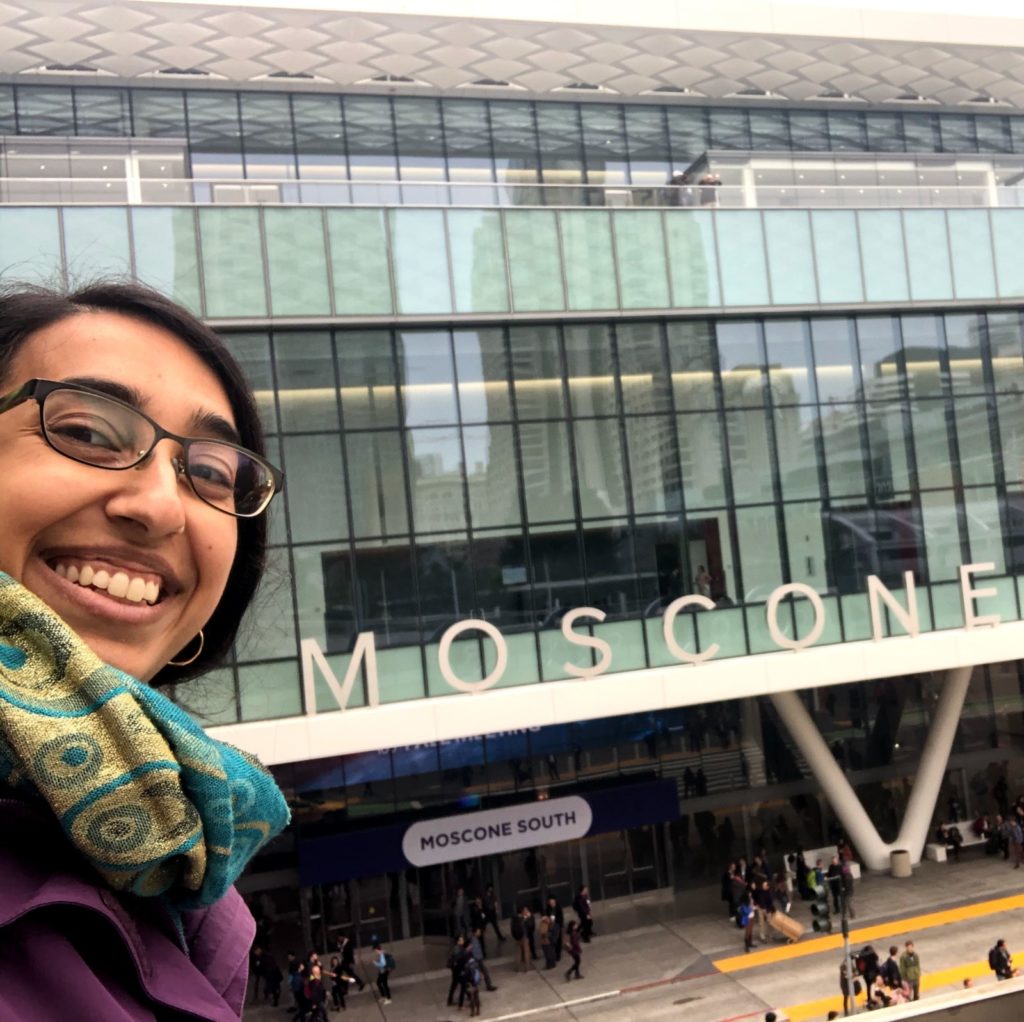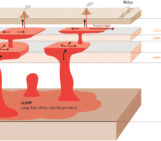
Conferences are a vital part of academic life but with many conferences moving online due to the pandemic, the virtual conference hall can be a minefield! After a year of conferencing from afar, Kiran Chotalia shares the tips and tricks to make the conference experience live from your living room a breeze!

Kiran Chotalia Post-Doctoral Associate, University of Florida, USA
It would be an understatement to say it has been quite the year. Travel restrictions put a full stop to conferences as we knew them, and the online conference became the norm. In my last post, I spoke about some hints and tips for making the most of your conference but do these pieces of advice hold up in the online conference world?
Lesson #1: If it’s not a little bit scary, is it even worth doing?
As someone who has been to my fair share of AGUs, EGUs and smaller meetings, online conferences this past year were a great way to feel connected again to other scientists from my living room. In some ways, it made everything else going on seem a bit less scary! The familiar buzz of getting ready for a conference, seeing what others had been up to in the last year and sharing new work with colleagues was comforting, bringing some sense of normality into a sea of uncertainty. For those of us who haven’t had the chance to attend an in-person conference yet, hopefully this experience gave you a flavour of what it’s like to see some up-and-coming research and put some faces to the names you’ve read/heard about.
Lesson #2: Sign up for presentation competitions
Keep signing up! This anonymous feedback can be invaluable, and it gets your name out there for people to look out for at the next workshop or conference. There were all sorts of presentation materials this year and we got to see a new realm of creativity from the community in recorded talks, interactive posters and during the online poster sessions. And for organisers having a hard time looking for judges, I highly recommend getting in touch with (i.e., emailing) those who you think are best placed to judge the work participating. This is especially true of early career researchers, who are always eager to lend a hand!
Lesson #3: Ask for feedback, not just on your science but on your presenting too
Asking for feedback prior to, during and even after the conference is still vital to hone your scientific presenting skills. It’s great to get an outside perspective from someone who hasn’t been working on it day after day. It’s all about improving clarity and making sure you get your message across. This paves the way for useful feedback on your science and presentation. It can also help to get familiar with online presenting such as screen sharing and the “can you hear me ok?”. To save time, the conveners often have control of the screen. I recommend practicing how to present when you don’t have control over what’s being shown on the screen – it can feel a bit strange at first, but after a few tries, you’ll get into the swing of things.
Lesson #4: Keep your ear to the ground for your next step
Chance meetings and introductions to colleagues of colleagues are often moments where you can find the next opportunity in your science career. This is perhaps the most difficult to replicate in an online environment. With meetings stretched over multiple weeks, many of us have had to balance our day-to-day commitments alongside the meetings we’re attending, meaning there is also less time for socialising and expanding circles. Further impacted by working across multiple time zones, the unplanned conversations and catch ups are one of the things I missed the most. One thing I would encourage is dropping an email to see if people have the time for a catch up (for those you already know) or dropping a message to presenters whose talk or poster you particularly enjoyed (for those you don’t know). This is a particularly encouraging for students and ECRs, especially if you couldn’t make their allotted presenting time. Send questions, comments or see if they would be up to chatting over zoom. This is the best way I managed foster some new connections and catch up with friends who I hadn’t seen in a few years!

My working-from-home set up, which has also been my ‘Conference Corner’
Lesson #5: Attend research specific meetings when the opportunity arises
With large fixtures of the conference calendar moved online, how did smaller meetings fare? Many have been delayed until the meetings can be held in person, but some new meetings appeared, such as the Mini-Workshop on Feedbacks Between Mantle Composition, Structure, and Evolution. One of the benefits of this meeting was the 2-hour session length, chosen to span as many time zones as possible. The structure of invited talks, mini talks and a panel under certain themes fostered some great discussion!
Lesson #6: Know your limits & Lesson #7: Have a (screen) break
‘Zoom fatigue’ has been one of the buzz phrases of the pandemic, with screen time overloading and exhausting us as all our interactions were moved online. Knowing your limits and having a break come hand in hand here. It’s taken some time to understand when best to take a break while working from home. I always try and get outside at least once a day, sunshine or (light) rain, normally around lunch time. This took some adjustment during conferencing times but breaks between sessions or talks are a must! If getting out isn’t possible, consider having a tea or coffee break whilst chatting to friends and/or family on the phone (no facetime!).
Lesson #8: Don’t forget to have fun
This past year has definitely been light on the fun… Somewhat unexpectedly, conferences really reminded me about the joy in what we do. Seeing all the amazing science, fantastic presentations, interesting discussions and seeing and hearing faces and voices I haven’t heard in well over a year was a delight! Although the virtual nature of the meetings was tiring, the fact that we could still have these meetings at all really allowed the breaking of weeks of monotony, working from home.
Bonus Lesson
One of the major benefits of an online conference is the reduced costs. With no need to empty the wallet for flights and accommodation, these are the most diverse conferences I’ve seen, with participants from all over the world. The reduced fiscal responsibility has also increased accessibility, for example to those with families, whilst the halt in international travel has reduced our impact on the environment. There is a strong case for future conferences to continue an online presence and it will be interesting to see where the next step in conference evolution will take us…
A massive thank you to those of you who organised and participated in these meetings. And to those of you who couldn’t make it, I can’t wait to see you soon!

Me, at my last in person AGU Fall meeting in San Francisco, 2019



